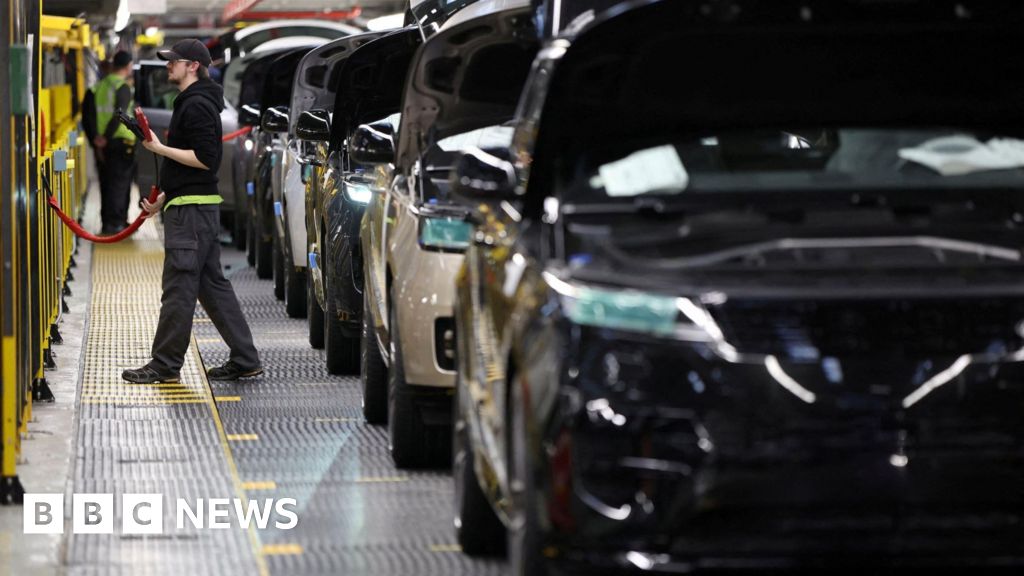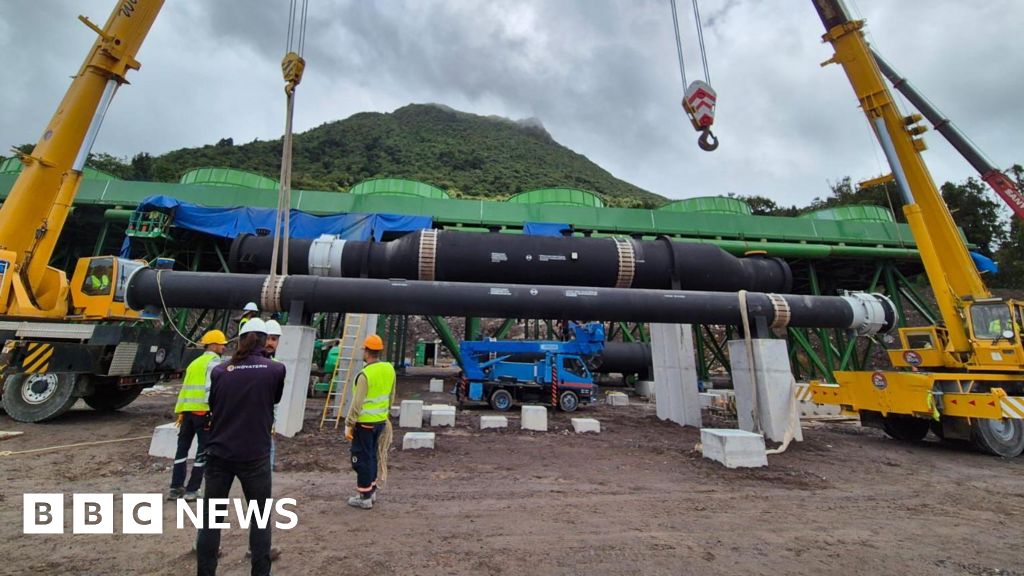ARTICLE AD BOX
By Richard Daniel & Pete Cooper
BBC News, East
Image source, PA Media
Image caption,The seasonal fruit picking industry is struggling because of Brexit and the pandemic
A recent government report warned that labour shortages "caused by Brexit and accentuated by the pandemic" were badly affecting our food and farming sector, with fruit suppliers often forced to leave produce rotting in the fields.
One fruit farm in Suffolk is already feeling the pinch. With strawberries ripe and ready, why are there not enough people to pick them?
'We need pickers'
Image source, Richard Daniel/BBC
Image caption,Famer Andrew Sturgeon believes if the UK cannot get people to pick fruit and vegetables the country will import more food
Andrew Sturgeon owns Lindsey Lodge Farm near Hadleigh, Suffolk, and says that from the "end of May into June we are full on, picking fruit".
"We need pickers, there is a limit to the amount of time you could expect anyone to pick fruit," he says.
"We have 11 pickers now but we'd like to get 15 or 16."
He is hopeful he will "get some people in the next few weeks" as school and university students become available.
"The constant battle of balancing supply and demand is probably the biggest worry but you've got to have the supply, you've got to have the pickers to get into that position of concern," he says.
"We had a system where if someone [from the EU] dropped out from our team they would introduce a friend or relative to take their place. That's no longer possible and that's caused the problems we're seeing today."
Last year, the government issued 30,000 seasonal worker visas, but Mr Sturgeon said the "horticultural industry needs 80,000 or 90,000 workers".
He says following Brexit, people from the EU "will have chosen to go home and those are the people we need replacing".
"It was very easy to get pickers and now it's not very easy," he adds.
"This spring, we've already seen a large area of asparagus in the Woodbridge area did not get picked, that's a huge loss of income for the farmer and most probably meant we imported asparagus."
'It's because of Brexit'
Image source, Richard Daniel/BBC
Image caption,Fruit picker Emmanuel Ciocanel says friends have gone to work elsewhere in Europe rather than the UK
Emmanuel Ciocanel, from Romania, has been working at the Suffolk farm for 12 years.
He says he enjoys the work and "because I work with family - my brother, my sister, my cousin - we keep coming back here and working".
Mr Ciocanel says he finds other temporary or seasonal work through an agency for the rest of the year, and sometimes returns to Romania.
He believes there is a lack of fruit pickers "because of Brexit".
"I have some friends and family in Romania who want to come but because of the paperwork they cannot."
Some of his friends have found seasonal work elsewhere because of the ending of free movement and the UK's exit from the EU, he says.
"They were in England, [now] they go to Germany [because] they don't know what will happen after Brexit.
"This year we are short of people, which will be more hard for us," he adds.
DEFRA: Is automation the answer?
Image source, Richard Daniel/BBC
Image caption,The government wants more automation in the horticulture industry
A government spokesperson says it acknowledges "the food and farming industry is facing labour challenges and we continue to work with the sector to mitigate them".
It says the Department for Environment, Food and Rural Affairs (Defra) is looking at how it can "support the uptake of automation technologies and reduce horticulture's reliance on seasonal migrant labour".
"We have given the industry greater certainty by enabling the seasonal workers scheme until the end of 2024, allowing overseas workers to come to the UK for up to six months to work in the horticulture sector," the spokesman said.
'It's easy and convenient'
Image source, Richard Daniel/BBC
Image caption,Student Anna Morley says she enjoys working on the farm during the fruit picking season
Anna Morley is the only English picker on the farm and combines seasonal work with her degree. She is studying veterinary physiotherapy at Writtle College near Chelmsford, Essex.
"This is my third season but my first picking strawberries - before I was picking raspberries," she says.
She is "definitely not" as fast the other pickers, who are mostly from Romania, but she is "learning slowly".
Ms Morley says the work on the farm is "pretty good" and she is a rarity as a British fruit picker.
"I live very local, it's easy and convenient, I wanted to work outside so it suits me fine," she adds.
'In Europe you can work anywhere'
Image source, Richard Daniel/BBC
Image caption,The government should make the system for seasonal workers easier, says Bogdan Iosub
Bogdan Iosub is the irrigation manager at Lindsey Lodge Farm, and has been there since 2009.
He says "if I'm still here", it means he is enjoys the work.
"I like the system, I don't like to be stressed and it works better for me," he says.
He originally came from Romania to work in Suffolk because "the pay rate was right and the system was right".
"But now, for new people, it's difficult to come here. In Europe you can go anywhere and work anywhere," he says.
Mr Iosub says for Romanians to work in the UK food sector, they need settled or pre-settled status - or a seasonal worker visa.
"People like to go where it's easy, the pay rate is the same across the EU," he says. "I have family in the Netherlands, it's the same [conditions as the UK].
"How can I ask someone to come [to the UK] when I don't know the future? I don't know what will happen in two or three years."
Find BBC News: East of England on Facebook, Instagram and Twitter. If you have a story suggestion email eastofenglandnews@bbc.co.uk
Related Internet Links
The BBC is not responsible for the content of external sites.

 2 years ago
47
2 years ago
47








 English (US) ·
English (US) ·